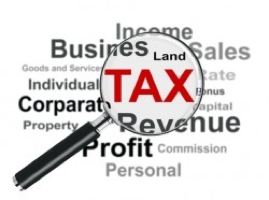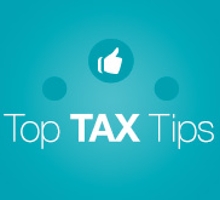Understanding Accounting Periods for Corporation Tax
 Understanding your accounting period in terms of the Corporation Tax your company has to pay is essential in ensuring you pay on time, every time.
Understanding your accounting period in terms of the Corporation Tax your company has to pay is essential in ensuring you pay on time, every time.
Everything we’re going to touch upon below can be accomplished by your accountant, though in several instances they’ll need input from you in order to make sure all dates and monetary figures line up. If you’ve yet to hire an accountant, or you wish to seek some advice about your accounting period from an outside professional, our contact details are at the bottom of this article.
Your Accounting Periods for Corporation Tax
In the majority of cases your accounting period for Corporation Tax will be be twelve months long, and should start and end in parallel with your company’s financial year; which for the majority of companies (unless you specifically chose for this to be different) is aligned with the tax year: starting on 6 April and ending on 5 April each year.
If you’re unsure of your accounting period for Corporation Tax, you or your accountant can log into HM Revenue and Customs (HMRC) online services, under which you’ll be able to locate these dates.
Shorter Accounting Periods
It’s possible, through no fault of your own, that your accounting period for Corporation Tax is shorter than the standard twelve months.
The typical reasons why this may be the case is because you completed your first accounts period in business (which may be less than twelve months), you recently restarted your business, or you chose to shorten your financial year.
In this situation you (or your accountant) will likely have to send more than one company tax return, though this will vary between companies. Although it’s possible to read about the specifics yourself, your accountant will have significantly greater experience in this area, and should at least be consulted of your plans, as they’ll likely have the knowledge needed to speed this process along.
Longer Accounting Periods
Though it’s not possible for your accounting period to last longer than twelve months, it is possible for your accounts to cover a longer period, therefore even though your accounts will be seen as one continual period, your accounting period for Corporation Tax will be divided into two periods; one that’s twelve months long, and one consisting of the remaining time.
Of course, if you stop trading at any point during your accounts, your accounting period will be split in half anyway, with you (or your accountant) having to complete a Company Tax Return for both periods.
Corporation Tax Cut to 20%
From 1 April 2015 Corporation Tax was cut to 20%, making it the lowest in the entire G20, and the largest reduction in Corporation Tax ever brought into effect in a single parliament. It is, of course, impossible to predict whether this reduction will remain in place.
Experienced Accounting Professionals
To speak with a professional to discuss your accounting periods for Corporation Tax purposes, contact us today on 020 8780 2349 or get in touch with us via our contact page to arrange a complimentary, no-obligation meeting.
Summary of the Pension Reforms
 Pension reforms finally came into effect on 6 April, but what do these changes look like, and what will this mean for pension holders going forward?
Pension reforms finally came into effect on 6 April, but what do these changes look like, and what will this mean for pension holders going forward?
The reforms touched upon a number of areas, the most significant of which we’ve summarised below. For a personalised take on how the pension reforms affect your retirement future, speak with a qualified accountant.
Complete Access to Pension Pots
The main changes coming out of the pension reforms were first announced over twelve months ago at Budget 2014, with many of them focusing on giving pension holders greater freedom over their pension pots in terms of how they save, spend, or invest their pension going forward.
This was epitomised in the Government giving pension holders complete access to their entire pension pot from age fifty-five (with pension holders over fifty-five receiving immediate access on 6 April), without needing to buy an annuity. The new laws brought in with the pensions reforms allow pension holders to make withdrawals from their pension pot whenever they wish, with 25 percent of their withdrawal being tax-free on each occasion. Prior to these reforms, pension holders could only make one withdrawal with the 25 percent tax-free benefit.
Pension Pot Inheritance Tax Scrapped
On 6 April the so-called 55 percent ‘death tax’ on pension pots being handed down to loved one’s when the owner passes away was scrapped, with benefitting loved one’s now only having to pay tax on the pot at their income tax level.
In the unfortunate case that the owner of a pension pot dies before the age of seventy-five, the individual(s) inheriting their pension won’t be required to pay tax upon receiving the pension pot.
Great Investment Opportunities
There have been arguments on both sides of the political divide surrounding whether allowing pension holders greater freedom over their pension pot is a wise decision in the long run.
There’s certainly something to think about on both sides of the argument, with some financial analysts suggesting that many pension holders looking to immediately take out a portion of their pension upon turning fifty-five may not be aware that in doing so they may push themselves into a higher tax bracket. For the most part, however, being given greater freedom over how (and when) you can save, invest, and withdraw your pension will provide many pension holders and their accountants with a lot to think about with regard to how to maximise their future returns.
For this very reason, Chancellor of the Exchequer George Osborne made it clear ahead of the pension reforms coming into effect on 6 April that pension holders should take their financial future into their own hands; seeking out advice where appropriate to ensure all financial decisions are well thought through ahead of their implementation.
Experienced Accountants
To speak with a professional to discuss what the pension reforms mean for your financial future, contact us today on 020 8780 2349 or get in touch with us via our contact page to arrange a complimentary, no-obligation meeting.
Tax Tips and News for May 2015
This issue … Forms P11D and P9D; Cancelling VAT or VAT-MOSS Registration; ATED Reporting; Auto-enrolment exemptions; May Question and Answer Section; May Key Tax Dates
Forms P11D and P9D
The forms P11D and P9D need to be submitted to HMRC by 6 July 2015 where expenses or benefits were provided to your employees in 2014/15, which are not covered by a dispensation, or are not otherwise exempt from tax. If the forms are not submitted on time, HMRC will issue penalties.
But how does HMRC know whether a P11D or P9D is due to be filed? In pre-RTI years when you completed the end of year form P35 you had to say whether a P11D was due. Those P35 questions were carried over to the "final" RTI report for each tax year, which is normally a full payment submission (FPS) report or employer payment summary (EPS). However, from 6 March 2015 there has been no legal requirement to complete those end of year questions, but most payroll software continued to include them in the final submission for the year.
If you didn't complete the "Is a P11D due?" question on the final FPS for 2014/15, HMRC may assume a P11D is needed anyway. To avoid any nastiness with automatic penalties you can tell the HMRC computer that no P11D/ P9D is needed and no Class 1A NIC is due by completing an online declaration.
The latest Employer Bulletin (no. 53) contains lots of tips for getting the P11Ds right first time, and it is well worth a read. You may find you don't have to submit a P9D for every low paid worker. Where an employee is provided with a medical benefit such as health insurance, and that employee earns less than £8,500 per year, you don't have to complete a P9D for the employee. We can help take the strain of your P11D task.
Cancelling VAT or VAT-MOSS Registration
If you registered for UK VAT in order to operate VAT-MOSS for your overseas sales of digital services to non-business customers, you may now find that the administration for such sales is just not worth the hassle. If so you may want to deregister for both UK-VAT and VAT-MOSS, and restrict your sales to UK-based consumers, or businesses located anywhere outside the EU.
The deregistration process for VAT-MOSS must be done online and it will take effect from the end of the calendar quarter in which notice to deregister is given. Thus to deregister from VAT-MOSS with effect from 1 July 2015 onwards, notice must be given by 15 June 2015. Note that once deregistered for VAT-MOSS your business can't use VAT-MOSS again for two calendar quarters.
The deregistration application for UK-VAT can be done online, and we can do this for you. The paper form VAT 7 can also be used to apply for deregistration from UK VAT. For a voluntarily deregistration the effective date is the date HMRC receives the application to deregister or a later date as agreed with HMRC.
ATED Reporting
The annual tax on enveloped dwellings (ATED) now applies to residential properties worth over £1m that are owned by a company, or a partnership with one or more corporate members, or in some cases a unit trust.
The ATED charge starts at £7,000 per year for properties worth over £1m but no more than £2m, and increases in steps to £218,200 per year for properties worth over £20m. This tax is normally payable to HMRC by 30 April within the year that charge applies to, which starts on 1 April.
So for most properties the 2015/16 ATED charge is payable by 30 April 2015 unless a relief or exemption is claimed. Although owners of properties which are in the lowest valuation band for 2015/16 (over £1m and not more than £2m) have until 31 October 2015 to pay this year's ATED charge.
Many companies and specific properties qualify for relief from ATED, but the relief must be claimed on an ATED return. Companies whose trade is: commercial letting, property development or property trading should qualify for relief from ATED and need to claim that relief on an ATED relief declaration return for their whole portfolio of properties.
If you would like us to submit an ATED return on your behalf, you need to complete a special ATED authorisation form: ATED1.
Auto-enrolment exemptions
Have you received a letter from The Pension Regulator (TPR) telling you to "ACT NOW" to prepare for auto-enrolment? The letter gives you just a few weeks to nominate a contact to receive communications about auto-enrolment, with the threat of fines or prosecution if you don't take action.
The "staging date" for your business will be stated in the letter. This is the date by which you must have a pension scheme ready for your employees to join, if you do indeed need one.
A large number of small companies will be exempt from auto-enrolment, if they don't technically have any "workers" at their staging date. A company director is not a "worker" if he or she does not have a contract of employment with the company. A company with no staff other than directors has no obligations under auto-enrolment if any of the following apply:
- It has only one director; or
- It has a number of directors, but none of those have an employment contract; or
- It has a number of directors, only one of whom has an employment contract.
TPR doesn't know which directors in which small companies have employment contracts. If you receive a TPR letter asking for a contact to be established for auto-enrolment, you can get TPR off your back with one email to: customersupport@autoenrol.tpr.gov.uk . This should open a structured email in which you need to insert your: PAYE reference, Companies House reference and the letter code from the TPR letter.
If your company does have staff other than its directors, we should talk about what preparations you need to make to get ready for auto-enrolment.
May Question and Answer Section
Q. I live in France and I am about to sell my former home in the UK, which has been let out since I emigrated in August 2001. Do I have to pay tax in the UK on the gain?
A. As you have lived abroad for nearly 14 years you will probably be treated as "non-resident" in the UK for tax purposes, but we need to check that with a few more questions. If you are a non-resident, the gain would generally be exempt from UK capital gains tax (CGT).
However, a new non-resident CGT applies to gains made on the disposal of residential property for 6 April 2015. This new tax only applies to the property of the gain falling after 5 April 2015. So if you sell the property fairly shortly after April 2015 there should be little gain to tax, and the first £11,100 of the gain will be exempt from tax.
Q. I am the sole director of my own company and will take a salary of £10,600 this tax year. How much dividend can I extract from the company this year without paying higher rate tax?
A. Assuming your company makes sufficient profits you can take out net dividends of £28,606 (90% of £31,785), without breaking into the 40% tax band.
Q. My Dad is nearly 90 years old and has an income of £26,000. My Mum who is 85, has an income of less than £10,000. Can my Mum transfer some of her unused personal allowance to my Dad in 2015/16?
A. Unfortunately, the transferable allowance of £1,060, doesn't apply to people who were born before 6 April 1935. Your father will already receive the married couple's allowance, which is worth up to £816.50 for 2015/16. The transferable allowance is only worth £212 (£1,060 x 20%), so he is better off with the married couple's allowance.
May Key Tax Dates
2 - Last day for car change notifications in the quarter to 5 April - Use P46 Car
19/22 - PAYE/NIC, student loan and CIS deductions due for month to 5/5/2015
31 - Deadline for copies of P60 to be issued to employees for 2014/15
We are committed to ensuring none of our clients pay a penny more in tax than is necessary and they receive useful tax and business advice and support throughout the year.
If you need further assistance just let us know – we're here to help!
Contact us today on 020 8780 2349 to discuss how any of the above affects your personal or business finances or get in touch with us via our contact page to arrange a complimentary, no-obligation meeting.
This blog is a general summary. It should not replace professional advice tailored to your specific circumstances.



